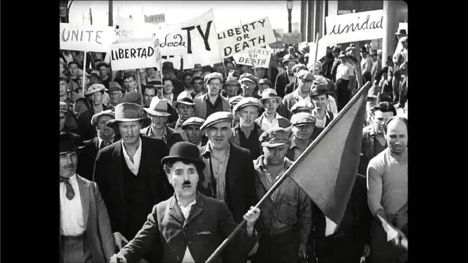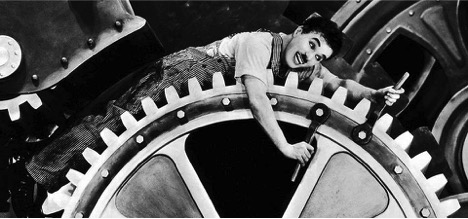I was lucky enough to be one of the film studies students who curated Our Digital Humanity: The Film Series, a series that supports Winona State University’s theme, “Our Digital Humanity.” The event was spread out into five days that included five feature films and a few short films along with audience discussion. Overall, it was a success and a big learning experience.
The event began with five Winona State film studies students who were tasked with curating a film series that supported the university theme, “Our Digital Humanity.” Our first task was to draft a list that we thought would complement the theme, then narrowing down our choices to the absolute best ones while being aware of the budget we were given for licenses. After our list was complete, we each individually contacted production companies to obtain public performance licenses. Our next step was to try and promote our series to both the university and general public. We completed this task by press releases, word-of-mouth, digital signage, and physical poster prints.
I presented on the film “Modern Times” directed by Charlie Chaplin, the first film to be screened in our series line-up. This was the first time I was introduced to one of Chaplin’s films. As I watched the film I made sure to note how exactly the film tied to the University theme. Doing so, to gather material for the screening I was going to be hosting. In order for my audience to understand the film and the context it was being presented in, I had to connect the film with the university theme. I did so, by thinking how the film plays as a stepping stone in understanding today’s society in the digital age.
Chaplin used the film as sort of a critique of the effects the industrial revolution had on society and the individual. In the film, Chaplin’s character, The Tramp, finds himself working at a factory in a production line. As he continues to work along others they each make a contribution, following a workflow pattern. This is when I noticed this was one of Chaplin’s critiques on the idea of conformity in society as we attached ourselves to machines to produce content. This idea can be traced back to the present day where our society has driven digital technology to be tied with our everyday lives. Today, we depend on digital technology to provide many different services such as jobs, education, and communication. We have depended on the digital machines, much like in Chaplin’s world, to provide content/services for ourselves.
In a different scene Chaplin is a guinea pig for a new invention that feeds factory workers during lunch time. The objective of the invention is to provide workers with a cycle of different lunch foods in a timely manner in order to have a quicker and efficient lunch hour. The theory is that it will open up some time for the factory to continue production. This sense of time efficient technology has made its way into our current society. We have introduced a wide range of mobile devices that provide quick and fast service in order for us to have more time in the day. Of course, this is not only done in our personal lives but also our professional lives. Every company tries to find the best way to produce more, for less, and do it faster.
One interesting note on the film, was the context it was set in. At the time of the release, 1936, “talkies” have been well established in the film industry, yet “Modern Times” was mostly a silent film. Chaplin was very resistant on the transition to sound as he thought adding dialogue would change the comedic persona of his iconic character, “The Tramp.” However, Chaplin did write a whole script for the film that he later ditched.
Instead, he decided to put some dialogue into the film but presented it in a very interesting way. While watching the film, you can see that whenever a character speaks, it’s done through some sort of device (a video call, radio.) This is one of the many other reasons we chose “Modern Times” to be presented in the series as the kick-off film. It is a stepping stone in understanding our university theme, “Our Digital Humanity” as well as introducing the other films in the line-up.
-Gilberto Hidalgo
